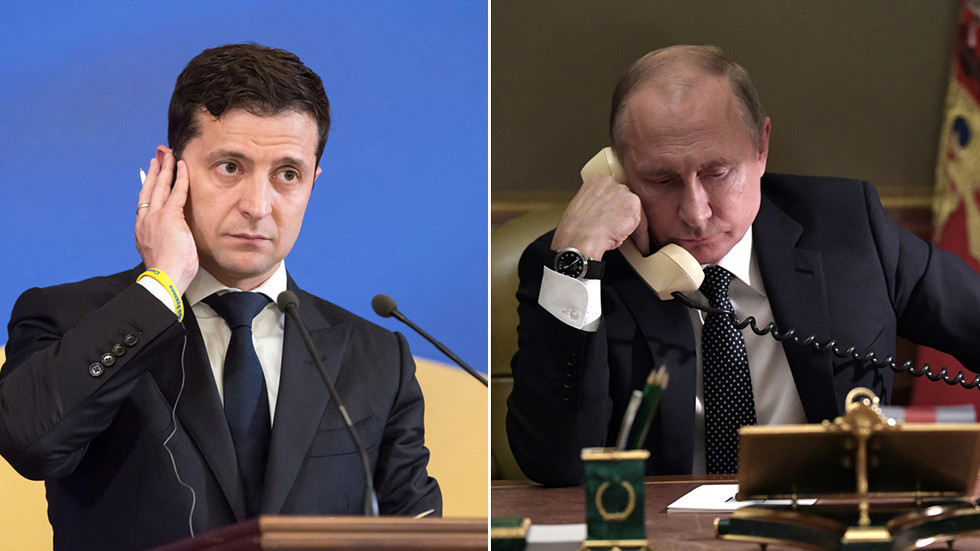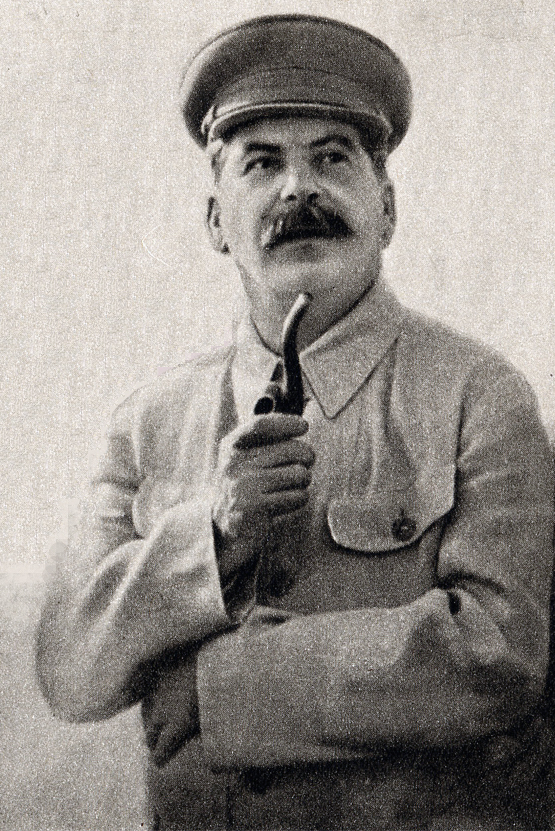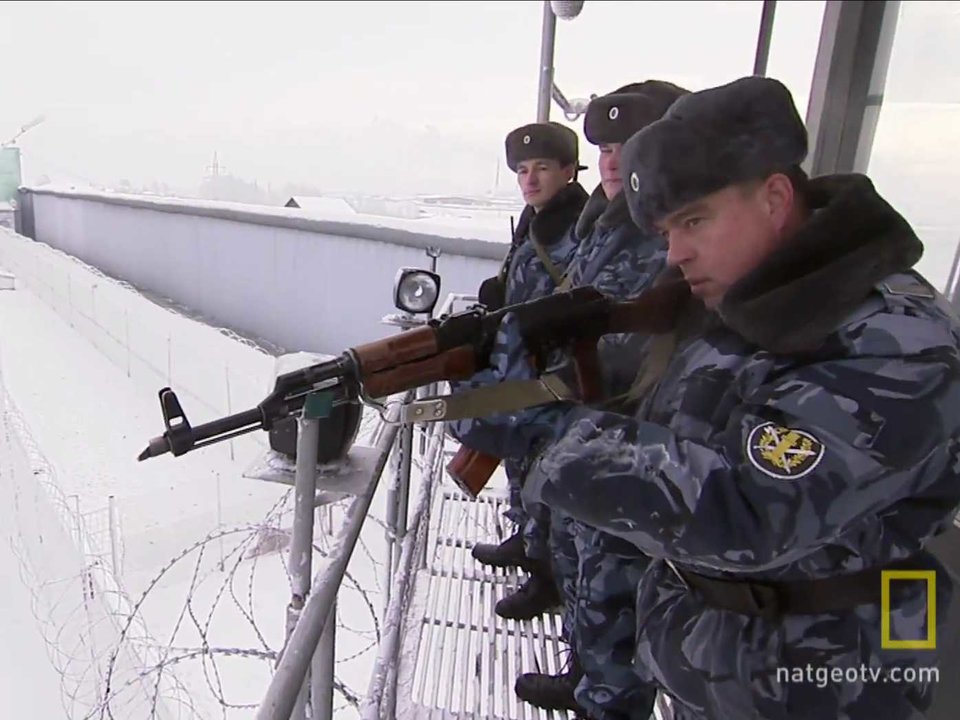
It was reported on July 11th, that Putin had his first direct conversation via telephone with new Ukrainian president Zelensky. According to RT, the call was initiated by Zelensky and focused on possible future negotiations on the Donbas conflict. However, it seems that Putin was irritated by Zelensky’s suggestion that the Normandy format be modified to include the U.S. and outgoing UK Prime Minister Theresa May who would likely be out of office by the time of any such talks:
The two presidents also touched upon the idea of continuing the talks in the ‘Normandy format’, which includes French and German leaders alongside those of Russia and Ukraine. Earlier, Zelensky urged Putin to talk in person in a video address he released on Monday. Yet, he also said that he expects the leaders of the US, the UK, Germany and France to chaperone him during such a meeting.
Zelensky’s decision to invite the outgoing British Prime Minister Theresa May prompted Putin to chide the Ukrainian leader. Putin particularly asked in what capacity she would be present at the talks, which are unlikely to take place before she leaves her post.
It doesn’t seem like Zelensky – an actor and complete political novice – is doing a good job of earning Putin’s respect so far, acting like he needs to be babysat if he’s going to talk to the Russian president. Granted, Trump was also an entertainer with no political experience, but he at least tried to give the impression that he was going to be his own man. Zelensky doesn’t come across as very confident in holding the office that he voluntarily pursued.
The Kremlin put out a very short summary of the phone call:
At the initiative of the Ukrainian side, Vladimir Putin had a telephone conversation with President of Ukraine Vladimir Zelensky .
They discussed issues of settlement in the south-east of Ukraine and joint work on the return of persons held on both sides. An agreement was reached to continue this work at the expert level.
The possibility of continuing contacts in the “Norman format” was also discussed.
We’ve all heard the claims from the MSM and self-serving politicians and pundits that Putin is rehabilitating his “favorite” Soviet/Russian leader, Josef Stalin. But genuine unbiased experts on Russia know that this isn’t true.
Putin has publicly condemned Stalin’s crimes numerous times, most notably in 2007 when he visited Butovo, a mass grave outside of Moscow that holds the bodies of over 20,000 who were shot dead during the height of Stalin’s purges from 1936 – 1938. Putin’s comments, as reported by Reuters, after the visit:
“We know very well that 1937 was the peak of the purges but this year was well prepared by years of cruelty,” Putin said beside a mass grave after laying flowers at a memorial.
Putin said such tragedies “happen when ostensibly attractive but empty ideas are put above fundamental values, values of human life, of rights and freedom.”
“Hundreds of thousands, millions of people were killed and sent to camps, shot and tortured,” he said. “These were people with their own ideas which they were unafraid of speaking out about. They were the cream of the nation.”
Moreover, in October of 2017, Putin attended the opening of the Wall of Grief Monument to the Victims of Repression in Moscow – a monument specifically dedicated to the victims of Stalin’s repressions and a project that he helped get approved. An excerpt of his comments follows:
“Millions of people were branded as enemies of the people, were executed or crippled, underwent torture in prisons and forced deportations,” he said. “This terrible past cannot be erased from the national memory. And certainly cannot be justified by whatever imaginary greater good of the people…
…. “The persecution campaign was a tragedy for our people, our society, a ruthless blow to our culture, roots and identity. We can feel the consequences now and our duty is not to allow it to be forgotten.”
Recently, the Washington Post and The Guardian both ran articles pushing the claim yet again that Putin – in his admiration for Stalin – is seeking to rehabilitate his image in Russia and whitewash his crimes. British Russia expert Paul Robinson, with some research assistance from Russia-based journalist Bryan MacDonald, refutes these accusations:
The more important questions are whether the Post and the Guardian are right that a) Stalin is being rehabilitated in Russia, b) this is the fault of the Russian state, and of Vladimir Putin more personally, and c) allowing the possibility of any ‘heroic’ achievements by the Soviet state – most notably victory in the Second World War – inevitably leads to a whitewashing of Soviet repression. Fortunately, in his Twitter thread Bryan points us to a document which provides an answer, namely a statement issued yesterday by the Permanent Commission on Historical Memory of the Council of the President of the Russian Federation. It’s worth translating this in full [note: I have copied in bold only the first few paragraphs which I think are the most relevant – Natylie]:
We have heard that monuments to I.V. Stalin are being constructed in towns in Russia.
Those of our fellow citizens and those political forces, who are prepared to forget and even justify the death and deprivation of freedom of millions of our compatriots, incite both bitterness and sympathy. Those who were victims of political repression, the deportation of peoples, collectivization, and the Holodomor, were often the best in the country. These repression are firmly connected to the name of I.V. Stalin.
And those who erect monuments voluntarily or involuntarily justify these repressions. These fellow citizens of ours are also victims of that regime: they’ve lost their sense of sympathy for our deeply suffering country.
We do not call for the establishment of monuments to I.V. Stalin on private plots of land to be banned. But civil servants of all levels must know that it is impermissible to allow state or municipal land or buildings to be used for this purpose. Such acts not only contradict morality and respect for our deceased, innocently suffering predecessors, but also contradict official state policy.
In answer to our questions above, what this makes clear is that a) yes indeed, there are moves afoot to rehabilitate Stalin, but b) the Russian state isn’t too fond of these and is pushing back against them, and c) it’s perfectly possible to take pride in the Soviet victory in the Second World War while condemning Stalinist repressions – the idea that celebration of wartime victory inevitably morphs into rehabilitation of Stalin simply isn’t true.
Russians in general have a complicated view of Stalin’s legacy, with his popularity waxing and waning over the years. According to a 2017 Levada poll, 46 percent of Russians had a positive view of Stalin and 43 percent had a negative or indifferent view of him. The majority of respondents in a 2016 poll characterized Stalin as a tyrant and acknowledged that his repressions led to “millions of casualties among innocent Soviet citizens.”


